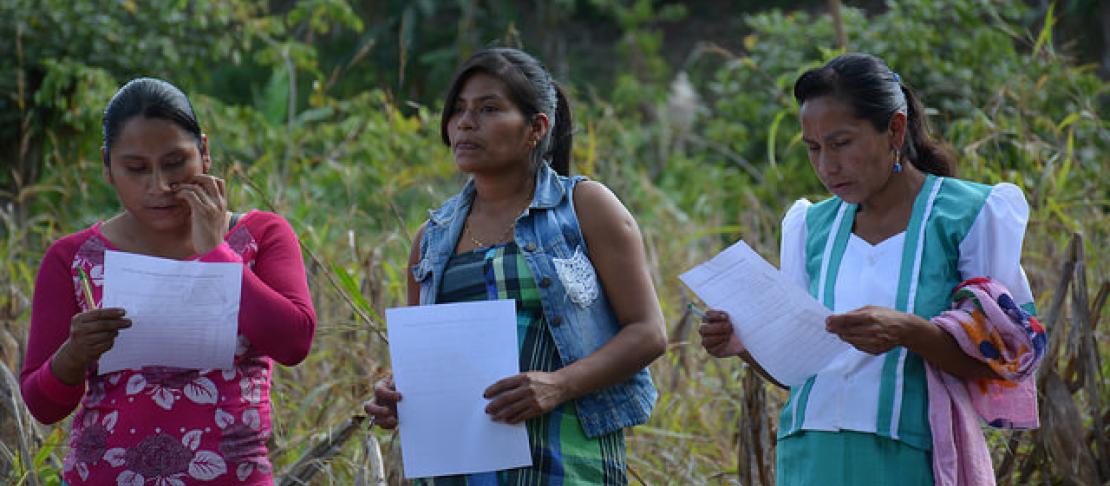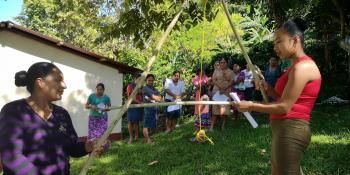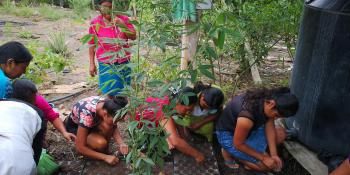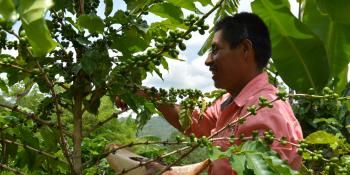Generating evidence on gender-sensitive climate-smart agriculture to inform policy in Nicaragua and Guatemala

Project description
The project aims to support the scaling up of gender-sensitive climate-smart agriculture (CSA) as a mechanism to increase resilience and improve livelihoods of vulnerable households in the face of climate change. Planned activities are meant to generate knowledge and insight regarding the impact of specific CSA options on the livelihoods and food security, as well as on the adaptive capacity of vulnerable households in Nicaragua and Guatemala, as they are confronted with increased climate variability.
The project team will generate science-based evidence on what links gender issues with adoption factors of CSA practices/technologies and what the mutual influences are; the team also aims to increase households’ and local organizations’ capacities to plan for, access, implement and monitor gender-sensitive CSA interventions that increase climate and livelihood resilience. Ultimately, locally generated evidence will inform national and regional dialogues on policies, guiding the design and implementation of a gender and socially inclusive CSA strategy. The project will employ the Climate-Smart Village approach.
The project runs from March 2018 to February 2020.
Activities
- Implementation of gender-sensitive Smart Household Monitoring instrument to assess CSA performance and outcomes
- Adoption trends of CSA practices and technologies and characterization of vulnerable household types/members
- In-depth gender analysis: Exploring the links between intra-household gender dynamics, adoption of CSA practices/technologies and related outcomes
- Gender-sensitive CSA capacity-building for farming communities and grassroots organizations
- Engagement and collaborations to inform gender-sensitive CSA policy operationalization
Outputs
- Smart Household Monitoring system developed and implemented in 2 Climate-Smart Villages (CSVs).
- Scientific paper on the application of the Smart Household Monitoring system for tracking CSA performance and gender-sensitive outcomes (Guatemala and Nicaragua).
- Results of Smart Household Monitoring validated.
- Scientific paper focusing on the how intra-household gender dynamics are related to decision-making processes of adoption of CSA practices.
- Training 1: strengthening farmers’ awareness of gender issues/dynamics, CSA awareness, the technical knowledge and skills required to adopt CSA options and/or use agro-climatic information (includes validation and sharing of the results obtained in the Monitoring exercise). Training 2: Strengthening men and women farmers' planning capacities and improve decision-making processes related to CSA implementation. Gender dimensions will include gender division of labor and time use aspects. Training 3: Strengthening local organizations’ capacity to monitor and evaluate CSA practices.
- Strengthened engagement and collaboration with CAC and COMMCA offices as well as with key local partners and stakeholders through regular meetings to update them on progress and seek for feedback and recommendations to move forward.
- Co-developed working plan between CCAFS, CAC and relevant national institutions from Nicaragua and Guatemala (e.g. Ministries of Agriculture) to implement the gender component of the CSA regional strategy based on the results of the study.
- Communication products to disseminate the relevant information coming from the project to the appropriate stakeholders.
- Final project report summarizing key activities and findings.
Expected outcomes
- Reduced production risk and increased resilience of vulnerable households to climate variability and/or related stresses (eg. out-migration) through enhanced capacities of men and women farmers to access and implement CSA options.
- Enhanced capacity of local organizations to plan for, implement and monitor gender-sensitive CSA interventions that help reducing gender inequalities.
- Improved adaptation and rural development policies at national and regional levels that integrate gender and social inclusion considerations.
Gender
Project activities include in-depth gender analysis and gender-sensitive CSA capacity-building for farming communities and grassroots organizations.
Partners
- International Center for Tropical Agriculture (CIAT)
- Ministry of Agriculture and Livestock of Guatemala
- The Nicaraguan Research and Development Institute (NITLAPAN)
- The Commonwealth of Copanch’orti’
- Tropical Agricultural Research and Higher Education Center (CATIE)
- Central American Agricultural Council (CAC)
- Central American Integration System's Council of Women's Affairs Ministers (COMMCA).
Further information
For further information, please contact Deissy Martinez-Baron (CCAFS-CIAT) at d.m.baron@cgiar.org or Osana Bonilla-Findji (CCAFS-CIAT) at o.bonilla@cgiar.org.


